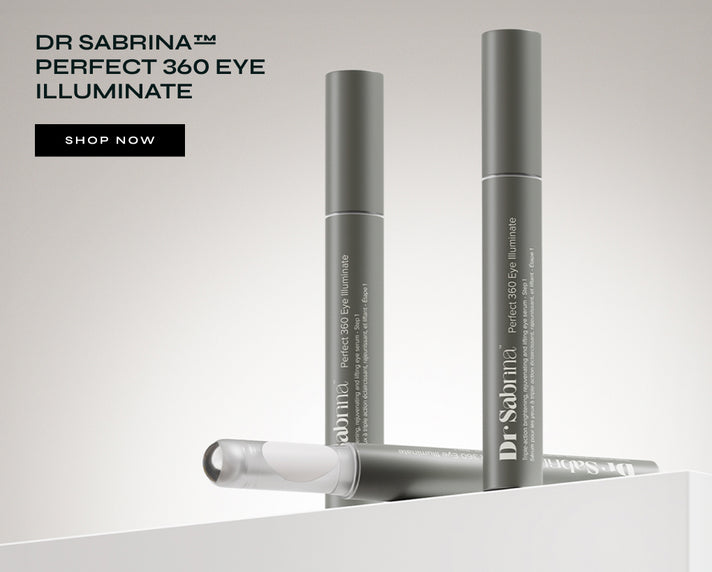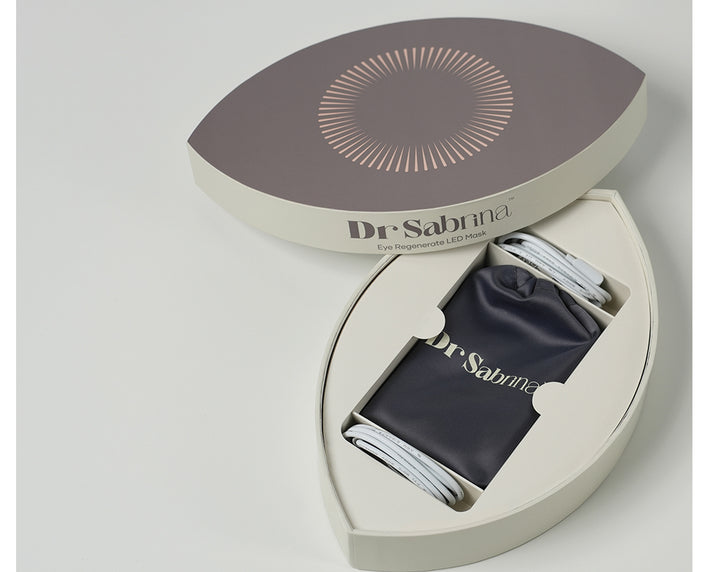LED Eye Patches
How to Hydrate Skin: The Ultimate Guide

Is your skin feeling tight, looking dull, or lacking that radiant glow? You’re not alone—figuring out how to hydrate skin effectively is one of the most common skincare goals out there.
While it’s easy to assume that a bit of moisturiser will do the trick, keeping your skin truly hydrated involves much more. From choosing the right ingredients to making small changes in your daily habits, understanding how to keep your skin hydrated can transform the look and feel of your complexion.
In this ultimate guide, we’ll uncover everything you need to know about how to get hydrated skin—the kind that looks naturally dewy, plump, and glowing.
Whether you're dealing with dry patches, fine lines, or just want that luminous look, we’ll break down simple, effective steps to achieve it. Get ready to unlock the secrets of how to hydrate your skin and say hello to a fresher, healthier appearance every day!
Why Hydration is Key for Healthy Skin
Proper hydration will keep your skin soft, pliable, and supple. By learning how to hydrate your skin, you will be preparing it to face common problems such as environmental stressors and ageing.
Hydrated skin heals faster, thus reducing concerns about breakouts, redness, or texture. However, just slathering on a moisturiser isn't going to achieve that perfectly hydrated glow. So, let's get started and find out how to hydrate your skin the right way.
Skincare Routine Essentials for Hydration
The best protection against dryness remains a well-thought-out skincare routine. Here's what it should contain:
Hydrating Cleanser:
A good cleanser must be gentle, hydrating, and wash dirt away from your skin while keeping its moisture barrier intact. This helps hydrate the face effectively.
Hyaluronic Acid Serum:
Hyaluronic acid holds 1,000 times its weight in water—that means it draws moisture to the skin, giving you an instantly plumper, dewy look. Using a good serum is one of the top tricks when it comes to how you hydrate your skin.
Moisturiser:
Choose a moisturiser that best suits your skin type. If you have dry skin, richer and thicker creams are better for moisture locking. On the other hand, a thinner formula with a gel-like consistency is better suited for oily skin. For combination skin, try using a heavier, richer cream for the dry areas and a lighter type for oily spots.
Sunblock:
Sun damage dehydrates the skin. Using sunscreen on a daily basis helps prevent moisture loss. Also, using products with antioxidants like Vitamin C or glutathione can also enhance hydration by repairing damaged cells and providing additional nourishment. Read more on Glutathione Benefits to understand how it supports general skin health.
Lifestyle Tips for Long-Lasting Hydration
Hydration isn’t just about what products you put on your face but also your lifestyle. Here's how you can hydrate your skin from the inside out:
Drink Plenty of Water:
This may seem obvious but it’s worth repeating. Aim for at least eight glasses a day to help keep your skin hydrated and flush out toxins.
Healthy Fats:
Consume foods rich in omega-3 and omega-6 fatty acids, such as salmon, walnuts, and avocados, to fuel the moisture barrier of your skin, keeping it soft and supple.
Humidifier:
Air indoors can dry out the moisture in your skin. A humidifier helps support skin hydration by adding moisture to the air in the form of water vapour or steam.
The Role of Hydrating Masks and Treatments

A deeper level of moisture delivery is achieved using special hydrating masks and treatments. Hydrating masks, especially those containing aloe vera, glycerin, or squalane, are a treat for dry skin.
Innovative products like LED under eye patches are also available and precisely target the area under the eyes. These advanced patches use LED light to stimulate collagen production, retain hydration and tackle dark circles and fine lines.
The Importance of Preserving the Skin’s Moisture Barrier
The moisture barrier is of great importance in how to hydrate skin and maintain its health. It is a thin outer layer of oils that protects the skin from external pollutants and damage while preventing moisture from leaving the skin.
If this layer breaks down, even the most hydrating formulas will have little to no effect. Here are some tips to help preserve it:
Exfoliate Carefully: Exfoliation removes dead cells. When done in excess, it peels the skin, leaving you feeling dry and irritated.
Don't Shower Too Hot: Very hot showers strip much-needed oils from your skin. Try keeping it lukewarm and gently pat your skin dry.
Moisturising Creams: These creams contain compounds such as ceramides and fatty acids that aid in the rebuilding of a damaged moisture barrier to allow for proper hydration.
Hydrating Ingredients to Look For in Skincare
The beauty market is full of product lines that claim to hydrate, but not all do. If you know what ingredients to be on the lookout for, you'll be steered towards the right products:
Hyaluronic Acid:
It's the ultimate hydrator that leaves your skin looking plump and dewy.
Ceramides:
These are lipids that help strengthen the ability to keep the barrier of the skin in check and prevent moisture loss.
Glycerin:
It is a humectant that draws moisture from the air into the skin.
Squalane:
It is a natural oil that reproduces the effects of the skin's own oils, which has proven highly effective in keeping hydration locked in.
If you are not sure how to hydrate your skin using these ingredients, begin with a serum or just a gentle moisturiser and see how your skin reacts to it.
Conclusion
Well, now you know exactly how to hydrate the skin. By constructing a proper skincare routine using nourishing products, changing your lifestyle, and using the correct ingredients, your skin will stay healthy and hydrated throughout the year.
Just remember, every person's skin is a little different, so there will be some trial and error to figure out what suits you best. Once you know how to hydrate your skin and find the balance, you will be on your way to smooth, glowing skin.
With these methods and consistency, you do more than just learn how to hydrate skin—you also learn how to hold on to that glow. Embrace the process of better hydration, and your skin will mirror your inner energy.
FAQs
Q1: Do I hydrate my skin by drinking water alone?
Drinking water is essential, but to hydrate skin, topical products such as moisturisers and serums have to be applied to lock in moisture.
Q2: How can I tell if my skin is dehydrated?
Dehydrated skin feels quite tight and dull-looking, sometimes even etched with a very fine-appearing network of lines across its surface. If you gently pinch it, you will notice a lack of elasticity.
Q3: Are there specific ingredients I should look for in hydrating skincare products?
Yes! You want to go for products that contain ingredients like hyaluronic acid, glycerin, ceramides, and squalane. They hold moisture really well and preserve and restore the skin's moisture barrier.
Q4: How often should I use a hydrating mask?
Use a hydrating mask 1-2 times a week to enjoy the best results. You can change the frequency of use depending on your skin type and the demands of your skin.
Q5: Is it possible to over-hydrate my skin?
Yes, you might end up overhydrating your skin if you use the wrong product or use too much moisturiser regularly. This may lead to issues like clogged pores, blackheads, and uneven texture. Use the right products for your skin type in the recommended quantity and frequency to ensure sufficient hydration without overhydration.









